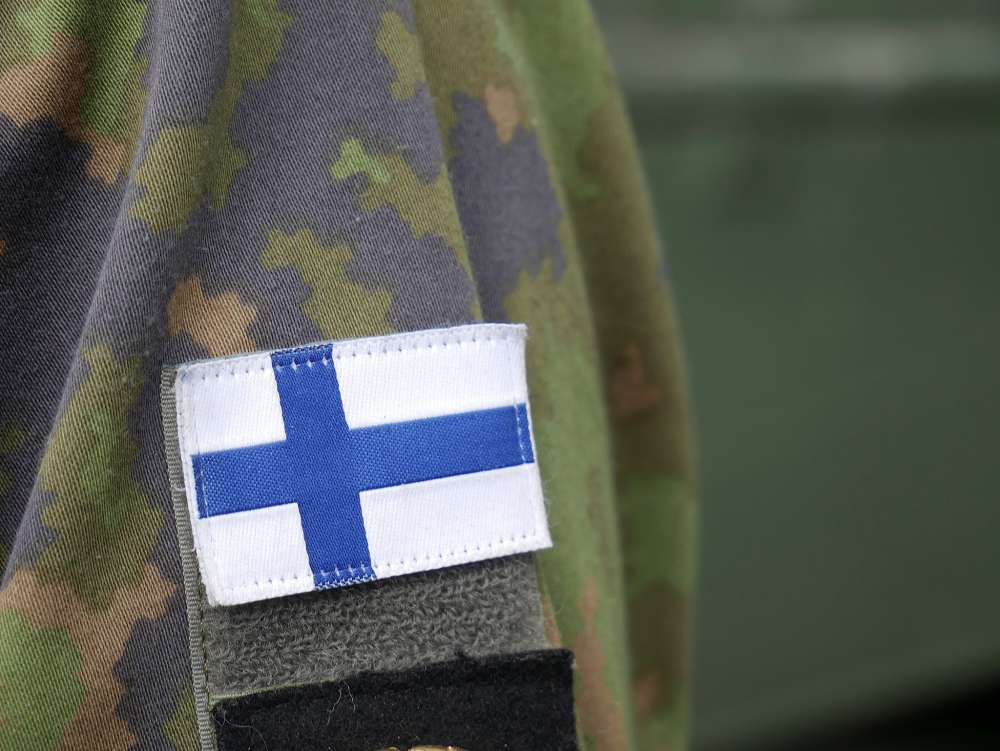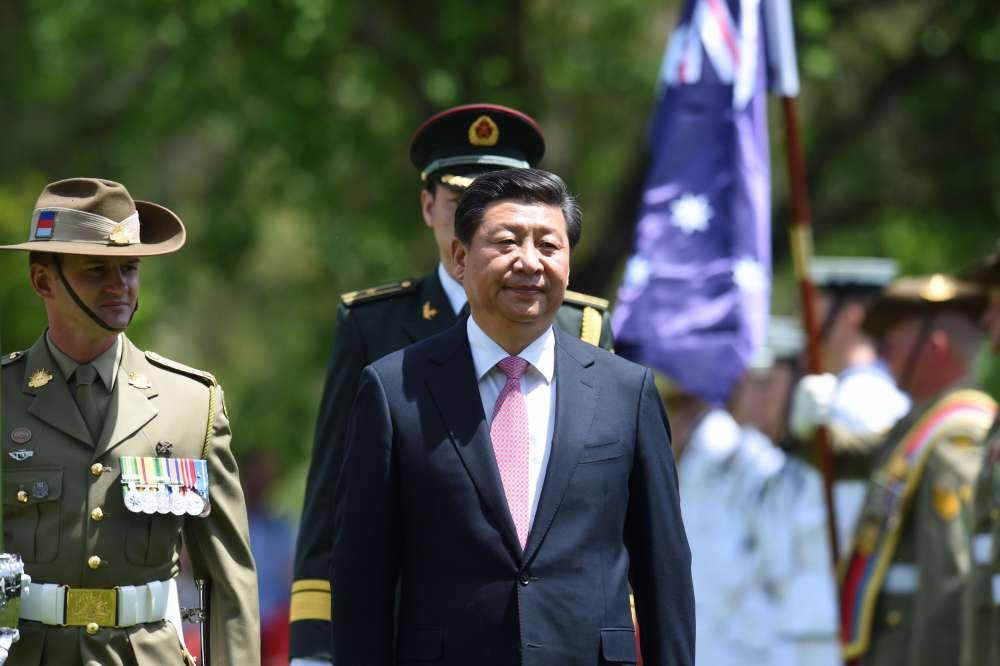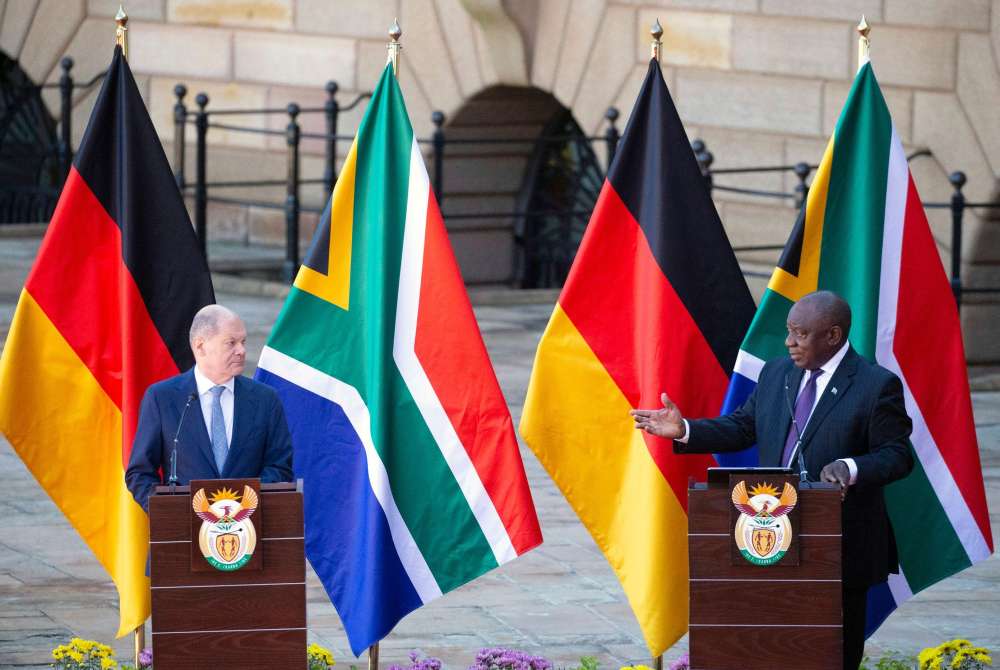Better Safe than Sorry: Lessons from Finland

Photo: Unplash
In the process of its security policy rethink, Berlin has the chance to become a capable security ally for the Nordic region. Germany may have a lot of catching up to do, but its northern neighborhood can offer the right peer group with which to join forces.
Key Points:
- Germany can learn a lot from Finland’s comprehensive focus on security and its implications for other policy areas.
- The Finnish concept of security is far more than military defense: it encompasses questions of the economy, critical infrastructure and overall societal resilience and preparedness.
- The Finnish mentality on security is pragmatic realism which allows it to prepare for the worst – meaning it is able to quickly recover when a threat occurs.
- In Finland, security policy is a constant part of its public debate. Adopting a similar policy would give Germany more public buy-in for its national security strategy.
In the wake of Russia’s invasion of Ukraine on 24 February 2022, German Chancellor Olaf Scholz announced a so-called Zeitenwende – i.e., turning point – in German foreign and security policy. Five months later, apart from the €100 billion in extra financing for the Bundeswehr (Germany’s armed forces), the announced sea change has yet to materialize. Contrary to the hopes of Berlin’s partners, the rearmament of Germany’s military will take several more years due to the decades-long neglect of its capabilities. Germany’s military incapability is a result of the country’s reunification at the end of the Cold War and the justified concerns of its neighbors about a militarily strong, united Germany. However, freeriding on US-provided security became a persistent habit even after the concerns about Germany as a potential military threat had subsided. As a result, Germany has been able to ignore security policy at both the highest levels of its political leadership and in the public discourse. Therefore, another aspect of Germany’s policy shift – which will also be time-intensive – is the change in its mentality.
Unsurprisingly, the German public debate around Russia’s war of aggression and Berlin’s role in supporting Ukraine has been characterized by controversial open letters, confusing official statements about German weapons deliveries to Ukraine, and – most urgently as of late – arguments about Germany’s dependence on Russian gas. Exasperation with Germany’s perceived indecision vis-à-vis Russia and inadequate support for Ukraine is mounting among its north-eastern neighbors. Meanwhile, southern Europeans are reluctant to show solidarity with Germany’s gas struggle, as the South has not forgotten Berlin’s role in the euro crisis. Germany will have to make a sustained effort to (re)convince its European partners of its solidarity and willingness to take responsibility for the continent’s security. A concrete and swift follow-up on the promise of a Zeitenwende could be that effort – if it does not get diluted in the process.
The Nordic Example
However, a rethink concerning foreign and security policy is not limited to Germany. In fact, the ripple effects of Russia’s attack on Ukraine for Europe’s security architecture are already much more visible in northern Europe. As a result of Russia’s full-scale invasion of Ukraine, Finland and Sweden decided to apply for NATO membership in May – thereby ending their long-established military non-alignment. In addition, Denmark abolished its (in)famous EU defense opt-out in a June referendum. Through these policy changes, two major structural hurdles have been removed from the Nordic and Baltic Sea security architecture. With Finland and Sweden, NATO will gain two new members with considerable defense capabilities. This will be a game-changer for the Baltic Sea and Arctic region – and especially for the defense of the Baltic states.
Given its geographical location at the Baltic Sea, Germany is a natural security partner for the Nordic and Baltic countries. In the process of its security policy rethink, Berlin is expected to become a solid and capable ally in the region. Germany may have a lot of catching up to do, but its northern neighborhood can offer the right peer group with which to join forces.
Finland, Germany’s Polar Opposite
Among the Nordic countries, Finland is the partner from which Germany has the most to learn. When it comes to security policy, Finland is in many ways the polar opposite of Germany. While in Germany, top politicians and state leadership spent decades trying to keep security policy’s implications for trade and energy policy out of sight and out of mind, in Finland, everything is viewed through a security policy lens. The more than 1,340 km border with Russia has never allowed Finns to slack off when it comes to national defense. When many European states abolished conscription, Finland kept it – now giving the Finnish defense forces a wartime strength of 280,000 troops with an additional reserve of 870,000 in a country with a population of 5.5 million people (compared the Bundeswehr’s 180,000 active personnel and approximately 980,000 reservists).
For the last 20 years, Finland has based its defense planning and procurement decisions on a strategic threat analysis conducted in the early 2000s. In light of Russia’s aggression, this foresight exercise has proven to be very accurate. It has always been clear that a threat to Finland would likely come from the East, which is why Finland’s defense capacities have been geared to protecting the eastern border. For example, Finland has one of the strongest artilleries in Europe, which is no coincidence. The way Russia is waging the war in Ukraine shows that one of the biggest challenges facing the Ukrainian forces is how to counter Russia’s strong artillery fire on an over 1000-km-long front. In addition, the Finnish Air Force is extremely well-equipped and continues to modernize its fleet: the Finnish Government’s latest aircraft purchase in December 2021 included 64 F‑35 fighter jets – the same model that Germany plans to purchase, but only up to 35 jets.
» The Finnish comprehensive security concept is more than military defense: it encompasses the economy, critical infrastructure, security of supply, civil defense, and overall societal resilience and preparedness. «
A Comprehensive Approach to Security
However, the Finnish comprehensive security concept is more than military defense: it encompasses the economy, critical infrastructure, security of supply, civil defense, and overall societal resilience and preparedness. For example, every building above a certain size is required to house civil shelters, strategically located bridges must include placements for explosives, and Finland also maintains emergency reserves of critical supplies, such as fuel, grain and medicine.
For its part, the harsh climate has contributed to Finland’s preparedness, but it is equally conditioned by the country’s geopolitical location. The Finnish mentality could be best described as pragmatic realism. Given its history with its eastern neighbor, who has attempted to invade Finland at least once every century, Finns are used to preparing for the worst. And if the worst-case scenario does indeed occur, it does not take Finland by surprise. For example, in its energy policy, Finland has prioritized self-sufficiency and kept a diverse source portfolio to avoid dependencies. Thus, Russia had no leverage over Finland’s energy sector. When Russia ceased first its electricity exports (which accounted for approximately 10 percent of total consumption in Finland) and subsequently also the natural gas flow (approximately 5 percent of total consumption) in May, Finland had already made preparations and neither incident caused a disruption of the energy supply.
Fostering a Public Debate
In contrast to Germany, security policy is a constant topic in the Finnish public debate. The swing in public opinion that led to Finland’s lightning-speed NATO application is indicative of the strong societal and political consensus beyond party politics on matters of national security. Finland has a pragmatic, largely non-ideological approach to security and defense policy: both nonalignment and the decision to join NATO were based on practical considerations. To avoid costly tensions at the border, Finland traditionally favored maintaining good relations with its eastern neighbor. Until Russia’s full-scale invasion of Ukraine, NATO membership was not considered necessary and was seen as a potential provocation toward Russia. However, Russia’s attack on Ukraine on 24 February made clear that no amount of self-restraint can guarantee security for a country in Russia’s direct neighborhood.
This realization triggered a drastic change in Finland’s public opinion concerning NATO membership – public support skyrocketed from around 25 percent in favor before 24 February to over 50 percent almost overnight after Russia launched the invasion. Finland’s application to join NATO was largely a bottom-up process, where political parties (of which only two had supported NATO membership before the invasion) and state leadership were strongly driven by public opinion. By mid-May, support for the decision to apply was overwhelming: in a parliamentary vote, 188 of the 200 members of parliament (minus the speaker who does not vote) voted in favor of NATO membership. Consensus on the need for a robust national defense is so strong across the party landscape that a Left Alliance MP who opposed Finland’s NATO membership did so out of concern that Finland might end conscription once in NATO. In the last poll from before Finland submitted its application, support for NATO membership was at 76 percent – and has risen further since then. It is typical of Finnish comprehensive security thinking that as broad a majority as possible be on board with such a pivotal decision on national security.
» For Finland, regular threat analyses, monitoring the security environment and developing foresight scenarios has proven to be a winning concept to ensure a high level of societal resilience. «
Better Safe than Sorry
The most important lesson Germany can learn from Finland is that it is better to be safe than sorry. Not taking stability for granted, actively preparing for potential changes in the security environment, keeping citizens informed about security and defense policy, and facilitating an open public debate on matters of national – and wider European – security can help to prepare society for disruptive events. For Finland, regular threat analyses, monitoring the security environment and developing foresight scenarios has proven to be a winning concept to ensure a high level of societal resilience.
For decades, Germany has neglected security concerns both on the political level and in the public discourse. To succeed, the current Zeitenwende must include an inclusive and fact-based public debate on Germany’s role in and responsibility for European security. Simply pouring money into the armed forces will not suffice – what Germany needs is a comprehensive change of its strategic culture.
Minna Ålander
Research Fellow, Finnish Institute of International Affairs (FIIA)
Weiterlesen

Security through Preparedness: Lessons from Australia and the Indo-Pacific
For any country with strong stakes in a rules-based order, China’s recent aggressions in the Indo-Pacific should set off alarm bells. It’s time for new thinking about national preparedness – as Australia has learned in recent years.

It’s the Politics, Stupid: Lessons for Germany from US Security Strategies
A successful national security strategy needs a solid political foundation. In democracies, that foundation – for better or worse – rests on the electoral process and the political leaders it produces.

No More Navel-Gazing: A Global Outlook on National Security
For Germany’s national security strategy to work, it cannot afford to separate its national and international interests. This mindset change will require Germany to rethink how it sees itself, its position in the global order and its outlook on the world itself.